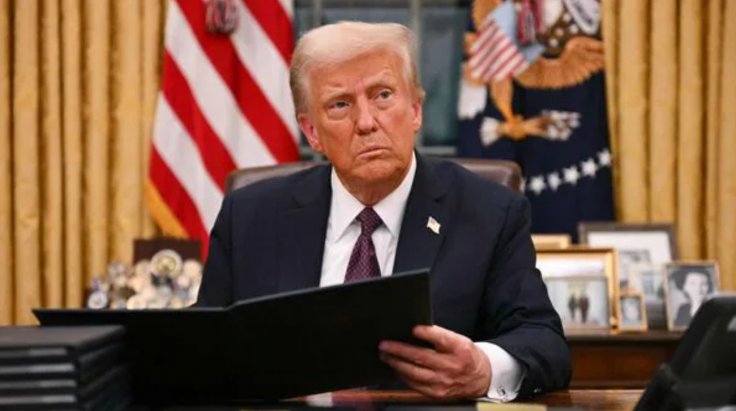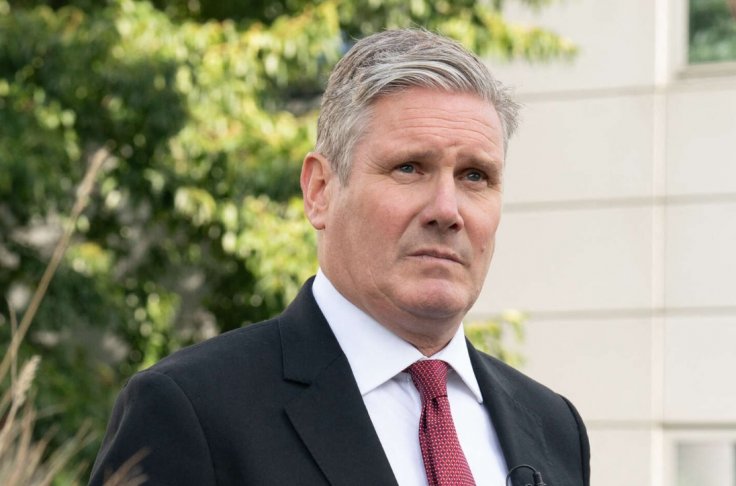President Donald Trump is expected to announce a trade deal between the United States and the United Kingdom on Thursday. The president, who has sought to bolster America's standing in global trade after slamming several of its trading partners for taking advantage of past deals, hinted at a major agreement set to be made on Thursday.
"Big News Conference tomorrow morning at 10:00 A.M., The Oval Office, concerning a MAJOR TRADE DEAL WITH REPRESENTATIVES OF A BIG, AND HIGHLY RESPECTED, COUNTRY. THE FIRST OF MANY!!!" the President wrote on Truth Social on Wednesday night. The New York Times later reported that the country involved in the deal is the UK.
Big Deal Coming Up

A British official said on Tuesday that the two nations had made good progress toward a trade deal, which is expected to feature reduced tariff quotas on steel and automobiles. Prime Minister Keir Starmer is working at a rapid pace to finalize a deal with the United States ahead of his major Brexit "reset," which is scheduled to be introduced at an EU summit on May 19.
According to the Financial Times, the proposed deal includes quotas aimed at safeguarding UK exports of vehicles and steel, along with cuts to top-line tariff rates.
In exchange, Britain is likely to agree to make concessions on a new digital services tax and to reduce tariffs on American-made cars and agricultural goods.
Trump's top officials have held a series of meetings with international trade representatives since he slapped a 10 percent tariff on most countries on April 2, along with higher "reciprocal" tariffs for several trading partners, although those were temporarily suspended for 90 days.
The United Kingdom was not hit with additional tariffs, unlike several other countries, as it imports more goods from the United States than it exports.
Trump has also imposed 25 percent tariffs on automobiles, steel, and aluminum, targeted Canada and Mexico with similar rates; and hit China with a steep 145 percent tariff.
Trump Finds a Way to Boost Trade

On Tuesday, Trump said that he and senior administration members would spend the next two weeks reviewing possible trade agreements to determine which ones to move forward with.
He previously said that he has "potential" deals in the works with India, South Korea, and Japan. The idea of a transatlantic trade agreement came up during a White House meeting in February, before Trump introduced his sweeping "Liberation Day" tariff plan.
However, expectations have faded that the UK might receive an exemption from the standard 10 percent tariffs on goods entering the United States.
Starmer has rejected several U.S. demands believed to be conditions for finalizing a deal. Among the U.S. demands rejected by Starmer are reductions in food safety rules that currently restrict American agricultural imports and alterations to online safety laws that some U.S. lawmakers argue infringe on free speech.
In recent months, the administration has introduced, revised, and reintroduced a wide range of tariffs—spanning from 10 percent to as high as 145 percent—affecting nearly all categories of imported goods.
On Wednesday, Trump said he would "think about" removing tariffs on children's products such as car seats and diapers to help lower their prices.









